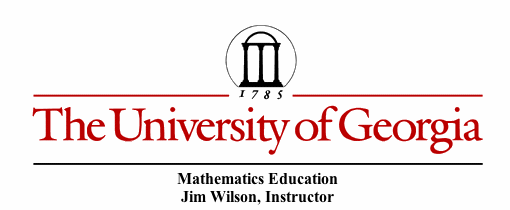

Special Projects
by
Valerie Russell
Introduction
My commitment to teaching emerged as I received the love and support of my family, friends, students, teachers, and administrators who allowed me to use and have faith in the belief that there are many approaches to learning. When my children were small I used cooking to help them gain an understanding of fractions, sewing to instill a love for geometry and creativity, and music as a means of self expression. Each one had different learning needs. Trying to meet those needs was probably the catalyst that hepled me begin to use different approaches to learning in the classroom. A recent article in CNN U.S. magazine asked the question, "What should be done to improve American student's performances in science and math? and "What are the best ways you have seen that get kids excited about studying math and science?"
We all know students who have expressed at one time or another a dislike for mathematics. They use class time to read unrelated books, draw, listen to music with their headphones, or just stare out the window.
Students who have great abilities in other disciplines use the excuse that they've never been good at math or don't see the relevance to math and what they deem important. As educators we are trained to know how to teach what is important for students to master in a particular curriculum whether handed down by the state, department, or in a book, and most often we fail to find out what is important to the children. We face language barriers, multiple intelligneces, sexuality, behavioral disorders, and other issues that emerge from a complex and diverse society. Many gifts and talents lie dormant waiting to be discovered. At times you find students who don't know what they are good at. While computers and calculators can provide fast information, its misuse can be harmful.
A teacher must dig deep into the heart of a child to unlock the treasures that lie within. Knowing how to tap into the gifts and talents of students is not always easy. It takes time to get to know your students, patience to diffuse negative attitudes towards reaching beyond the realm of memorizing facts and figures, and a willingness to teach mathematics beyond what's needed to pass a test. Every day I teach is an adventure into some childs world. Maya Angelo said, "If you teach you must first be willing to be taught."
Teacher's Corner
African American History Month